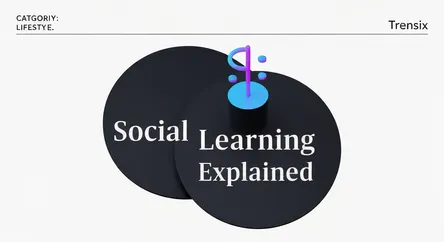Lifestyle
Social Learning Explained

Discover social learning, an approach where people learn by observing and interacting with others. It's revolutionizing online and offline education.
What is it?
Social learning is an educational theory suggesting that people learn from one another through observation, imitation, and modeling. Popularized by psychologist Albert Bandura, it posits that learning is a cognitive process that takes place in a social context and can occur purely through observation or direct instruction, even without direct reinforcement. This approach moves beyond traditional classroom settings, encompassing everything from peer-to-peer discussions and mentorship to collaborative projects. It emphasizes that our interactions with others and the environment are fundamental to how we acquire new knowledge and behaviors.
Why is it trending?
The rise of digital technology and remote work has supercharged social learning. Online platforms, social media groups, forums, and collaborative tools like Slack or Microsoft Teams have created virtual spaces for continuous learning. This model mirrors how we naturally absorb information in our daily lives, making it more engaging and effective than passive instruction. Companies and educational institutions are adopting it to foster a culture of shared knowledge, improve team collaboration, and adapt quickly to new challenges in a rapidly changing world. It's an efficient way to scale learning and development.
How does it affect people?
Social learning fosters a stronger sense of community and belonging among learners, which boosts motivation and engagement. It exposes individuals to diverse perspectives, encouraging critical thinking and problem-solving through discussion and debate. By participating in group learning, people develop essential soft skills like communication, teamwork, and leadership. This collaborative process empowers individuals, transforming learning from an isolated activity into a dynamic, shared experience. It helps build confidence as learners can both receive support from peers and offer their own expertise, reinforcing their understanding.